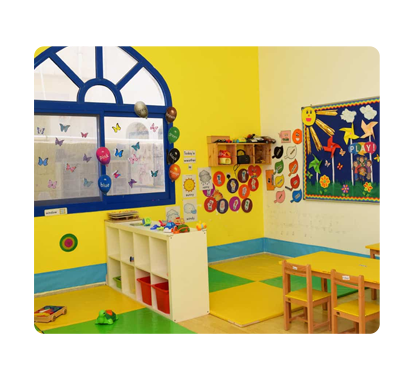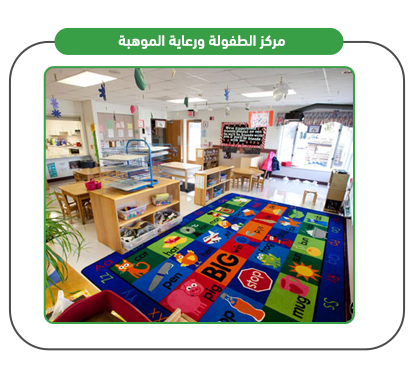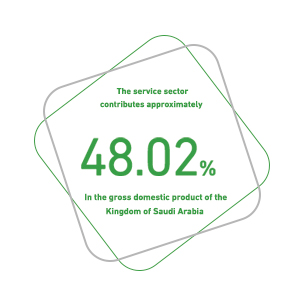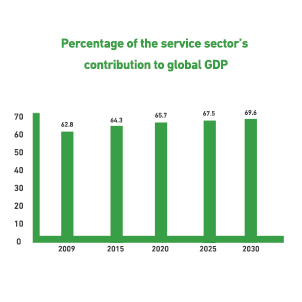It is a childhood and talent care center that provides childcare services by providing an educational nursery for children to properly prepare them.

It is a childhood and talent care center that provides childcare services by providing an educational incubator for children to prepare them properly and in a way that is conducive to the future educational process, while giving them self-confidence using globally innovative methods and techniques. The project aims to provide a safe environment for children, where they are taught the values of creativity and perseverance, and to shape their personalities. The childhood and talent care center will be equipped with the best possible services for children in all aspects, such as safety, play, cognitive education to develop talents, recreational activities, games, and enrichment programs. Healthcare is also available for male and female students, and it is managed by a specialized educational and pedagogical staff who teach them the basics of languages while providing educational and pedagogical services. The childhood and talent care center also addresses comprehensive educational, developmental, and rehabilitation aspects that contribute to building a generation characterized by innovation and creativity. It responds to the changes of the era and this is achieved by employing the best administrative, technical, and educational cadres distinguished in this field. It also provides an attractive environment that utilizes the best modern scientific and educational means to discover and nurture talents.



Projects are a fundamental factor contributing to the nation’s advancement.
They are the core of the educational and pedagogical process.
The educational process contributes to raising the cultural and civilizational level of peoples.
They contribute to building a knowledge-based society.
Executive summary
Study project services/products
Market Size Analysis
Risk Assessment
Technical study
Financial study
Organizational and administrative study

The Education Sector in the GCC Countries: Because Mashroo3k Economic Consulting and Market Research believes in the importance of the education sector and its role in localizing the national workforce, it has decided to present the following key indicators of the education sector in the GCC countries, calling for investment in this important sector:
The total number of students in early childhood development (including nurseries and kindergartens) in the GCC countries, according to the latest available statistics, reached 851,500 students.
The number of students in school levels in the GCC countries was estimated at approximately 9.3 million students (79.4% in the government sector and 20.6% in the private sector).
The number of students in adult education centers was estimated at approximately 181,247 students.
The number of higher education students was estimated at 2,206,446 students.
The number of early childhood teachers was 50,647.
The number of school teachers was estimated at approximately 727,904.
There are 5,806 existing early childhood education institutions.
There are 32,310 existing primary education institutions.
In recent years, governments in the Gulf Cooperation Council (GCC) countries have sought to bridge the gap between education and the labor market. They have adopted educational curricula that increase the share of vocational and technical education and encourage learning through modern media and technologies. In this context, we should not fail to point out the increased spending in these six countries on education and its quality, in order to graduate generations that meet the private sector’s workforce needs.
According to the latest statistics, Saudi Arabia spends 18.9% of its budget on education, the UAE spends 14.8% of its budget on education, the Sultanate of Oman spends 12.2% of its budget on education, Bahrain spends 9.8% of its budget on education, Kuwait spends 12.3% of its budget on education, and Qatar spends 10.5% of its budget on education. By 2023, the private education market in the GCC will reach $26.2 billion.
The global education sector: The global education services market reached approximately $2,882.52 billion by the end of 2021, and global experts expect the market to reach $3,191.79 billion by the end of 2022, achieving a compound annual growth rate (CAGR) of 10.7%. By 2026, the market value will rise to $4,623.90 billion, representing a CAGR of 9.7% during the forecast period.

By 2030, the global value of education as an industry will reach US$10 trillion.
By 2024, the value of online education worldwide will reach US$247.46 billion.
The AI education market will expand at a compound annual growth rate of 36% from 2022 to 2030.
In 2000, the number of students worldwide was approximately 657 million, and this number increased to 739 million in 2019.
In 2000, the number of secondary school students was approximately 452 million, and this number increased to 601 million in 2019.